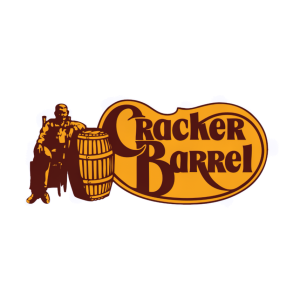Biglari Capital Corp. Issues Letter to Shareholders of Cracker Barrel Old Country Store, Inc.
Rhea-AI Summary
Biglari Capital Corp. issued a letter to Cracker Barrel (CBRL) shareholders, criticizing the company's leadership and strategic decisions. Since 2019, Cracker Barrel's market value has fallen by $2.9 billion, with a 50.9% drop since CEO Julie Masino's appointment. The letter highlights the company's poor performance, citing a 70.2% decline in total shareholder returns over five years. Biglari Capital attributes these losses to board and management failures, including misguided capital expenditures and unprofitable new store openings. The letter calls for a board overhaul and a focus on core business operations to restore value. Biglari Capital proposes a low-capex plan, including divesting Maple Street Biscuit, halting new store openings, improving store-level economics, and returning cash to shareholders. The letter emphasizes the need for experienced turnaround leadership to address Cracker Barrel's challenges.
Positive
- Biglari Capital owns 2,069,141 shares of Cracker Barrel, showing significant investment.
- Proposes a low-capex plan focusing on core business operations to restore value.
- Calls for divesting non-core assets like Maple Street Biscuit to streamline focus.
Negative
- Cracker Barrel has lost $2.9 billion in market value since 2019.
- Share price fell 50.9% since CEO Julie Masino's appointment.
- 70.2% decline in total shareholder returns over five years.
- Misguided capital expenditures and unprofitable new store openings.
- Operating income fell from $167 million in 2011 to $121 million in 2023.
- Board's decision to slash quarterly dividend by about 80%.
News Market Reaction
On the day this news was published, CBRL declined 1.10%, reflecting a mild negative market reaction.
Data tracked by StockTitan Argus on the day of publication.
Dear Shareholders of Cracker Barrel Old Country Store Inc.:
Through affiliated entities, we have been shareholders of Cracker Barrel since 2011. We currently own 2,069,141 shares. Since 2019, the shareholders of Cracker Barrel have collectively lost over
Neither the appointment of Julie Felss Masino as the Company's CEO nor her new transformation plan has restored shareholder confidence. In fact, Cracker Barrel's share price fell
This letter is devoted not only to the current plans of the Company but also to the historical decisions that led to Cracker Barrel's current crisis. A postmortem is instructive so as not to repeat past mistakes. Nothing captures this sentiment better than the cautionary words of George Santayana: "Those who cannot remember the past are condemned to repeat it."
The Cracker Barrel Board Has Destroyed Shareholder Value
Cracker Barrel is in perilous times. Not only is a change to its Board warranted but we believe it is also mandatory for the sake of the Company's future. The proof is in the stock performance — in absolute terms and relative to its peers — over one-, three-, and five-year time periods.
Total Shareholder Returns | |||
1-Year | 3-Year | 5-Year | |
Cracker Barrel | (49.6 %) | (65.3 %) | (70.2 %) |
Proxy Peer Group | (11.6 %) | (10.6 %) | 17.6 % |
Casual Dining Peer Group | (10.6 %) | (10.6 %) | 12.4 % |
S&P 500 Index | 28.0 % | 29.9 % | 108.5 % |
Source: FactSet. Total shareholder returns as of August 16, 2024 — one day before Biglari Capital Corp.'s nomination notice became public.
Cracker Barrel 2024 proxy peers include: Big Lots, Inc., Bloomin' Brands, Inc., Brinker International, Inc., Cheesecake Factory Incorporated, Chipotle Mexican Grill, Inc., Darden Restaurants, Inc., Dave & Buster's Entertainment, Inc., Denny's Corporation, Dine Brands Global, Inc., Domino's Pizza, Inc., Jack in the Box Inc., Red Robin Gourmet Burgers, Inc., Texas Roadhouse, Inc., Tractor Supply Company, Wendy's Company, Williams-Sonoma, Inc.
Casual dining peers include: BJ's Restaurants, Inc., Bloomin' Brands, Inc., Brinker International, Inc., Cheesecake Factory Incorporated, Darden Restaurants, Inc., Dave & Buster's Entertainment, Inc., Denny's Corporation, Dine Brands Global, Inc., Texas Roadhouse, Inc. |
Cracker Barrel's Poor Performance Is a Direct Result of Board and Management Failures
Former CEO Sandy Cochran's tenure was calamitous, but it is the Board that must be held to account for approving capital expenditures for new stores and new brands, from start-up Holler & Dash to the bar concept Punch Bowl Social to Maple Street Biscuit. Despite glaring managerial failures in new stores and a zero-for-three record on new brands, the Board kept Ms.
In most situations, promoting the retired CEO to Chairman and having her look over the shoulder of the new CEO is an indication of a breakdown in governance structure. Clearly, the Board was deferential to
Ms.
Cracker Barrel Capital Allocation Record | |||||
($ in thousands) | |||||
2011 | 2023 | Change | |||
Revenues | |||||
Operating Income | $ 167,181 | $ 120,617 | $ (46,564) | ||
Number of Cracker Barrel Stores | 603 | 660 | 57 | ||
Cumulative Capital Expenditures (12-Year Period): | |||||
Source: As reported in SEC filings. Capital expenditures are from fiscal years 2012 through 2023, which cover Ms. |
Over a 12-year period, cumulative capital expenditures totaled
Despite the changes to the Board and management, earnings of fiscal 2024 were lower than those of fiscal 2023. Sales are too weak, costs are too high, and margins are too low. Moreover, Cracker Barrel has no credible plan to regain customer traffic. In fact, management has forecast a decline in traffic for the fiscal year 2025. Meanwhile, the Board's decision to slash the quarterly dividend by about
Let it be known that we warned the Board and shareholders of what we saw as it unfolded — the lack of focus on core operations, the low returns on new stores, and the attempt to launch or purchase nonsensical brands — through a total of 12 shareholders' letters since 2011; they can be accessed at enhancecrackerbarrel.com. We could not have been more vocal about the Board's missteps. Had we not repeatedly run several proxy contests, we believe Cracker Barrel would have opened hundreds of new stores instead of returning that capital to shareholders. But because we did not prevail in prior proxy contests, the Company continued to venture outside its lane while failing in the execution of its core business. Unfortunately, the chickens have come home to roost.
We value focused management and focused companies. As investors, we have seen focused management excel and have seen time and again what happens when management loses focus: failure ensues. The difference is billions of dollars' worth of market value.
Here are two areas where the Board could have rejected obvious folly:
- New stores. Opening new stores was unnecessary and costly. When customer traffic is declining in existing stores, a savvy operator doesn't try to make up for it by opening new locations. And to compound the situation, expanding the Company's footprint on the highly expensive West Coast was an unforced error. Returns on new stores were destined to be poor — the cost to build was too high, as was the volume required to succeed. To put the numbers into perspective, in the first 40 years of Cracker Barrel's existence, there were about 20 closures,3 but in the last two years, 10 Cracker Barrel stores have closed, mainly on the West Coast. In other words, about
3% of stores closed in the Company's first four decades of operation but nearly60% of stores in the West Coast expansion closed in the last several years, underscoring the current Board's fundamentally flawed decision-making. Of course, we vehemently opposed new store investments, and history proves that we were correct. - New brands. Holler & Dash and Punch Bowl Social were both terminal investments. The first was the wrong formulation for a company that had no executive on its team who had successfully started a new company. The second was a risky proposition because in the bars and taverns business, as anyone who has ventured there knows, an especially steep climb awaits anyone aspiring to success. The losses were material: Punch Bowl Social alone cost the Company about
$140 million 14% of the current market capitalization. Why would a family dining establishment venture into these urban-centric concepts in the first place?
A Flawed Board Is Responsible for a Flawed Strategy
On May 16, 2024, management discussed its "strategic transformation plan," a high-capital-expenditure strategy. Over the next three years, the Company plans to spend "
The plan the Board has adopted involves remodeling the units with new booths and banquettes, which have not been part of store interiors to date. Yet the problem lies not in the seating but in getting more people to sit in it. We do not believe changing the furniture and altering the decor are going to change the Company's trajectory or solve the Company's underlying problem of declining traffic.
We believe the questionable transformation plan is indicative of a poorly constituted board that cannot relate to the Cracker Barrel brand or its customers. It lacks turnaround experience, and is critically missing the skill set needed to address the underlying business challenges.
While announcing the transformation plan, CEO Julie Masino stated: "[W]e're just not as relevant as we once were." We question how and when Cracker Barrel ostensibly lost relevance. If it has, where was the Board during this period of slow and steady decline?
Can Cracker Barrel spend its way back to relevance? Investors think not. From the moment management presented its plan on May 16, 2024, through the date of our nomination, the stock price fell another
The Right Plan for Cracker Barrel: Focus on the Core Business
Contrary to the recent pronouncements by management, we believe Cracker Barrel is relevant; the problem rests not with the brand but with its board.
Cracker Barrel has been geographically well positioned all along. About half of the 658 Cracker Barrel stores are situated in the fastest-growing states by population over the last year:
It is therefore shocking and inexcusable that the Company has lost about a third of its customer traffic over the last 20 years, despite operating in areas of the country with population growth, robust economic growth, and a huge advantage in real estate.
Instead of implementing the high-capex plan, we believe the Board should focus on the following low-capex plan:
- Divest Maple Street Biscuit. Management can't effectively execute a turnaround while spending time on a rounding error. We believe Maple Street is an unnecessary extracurricular distraction for the Board and management. Andy Grove wrote, "The art of management lies in the capacity to select from the many activities of seemingly comparable significance the one or two or three that provide leverage well beyond the others and concentrate on them."
- Halt new store openings. Every time a new unit opens, it costs about
$8 million - Focus on store-level economics. The single greatest way for Cracker Barrel to create value is by improving operations. The stores must provide a warm, caring, hospitable environment with authentic country cooking. The principal reason unit-level performance has been dismal is that unit-level customer traffic has been declining. Regaining the lost traffic in existing stores holds the potential of several billion dollars in market value creation. Realizing this potential will entail, among other things, improving the quality of products and service, and making more effective use of technology. What the Company has been doing with its remodel program is embarking on a strategy to undifferentiate itself — and at a high cost — while making wholesale changes such as introducing "20 new items." Instead, we believe the Company has to keep its offerings simple but true to the brand's heritage, in the form of high-quality home-style cooking. It should not be all things to all people, but known for offerings that are differentiated in an old-fashioned way whose consistent ingredient is quality.
- Return cash to claimholders. Pay down debt and pay dividends. Our low-capex plan to improve operations, attain peer-comparable store-level margins, and eliminate excess general and administrative expenses will allow for the restoration of higher dividend payments or share buybacks.
Cracker Barrel's leadership should put all of its attention on providing great products and great service at a great value. It will never be one thing that solves the Company's problems but a lot of important little
things — details that stem from ingenuity, not capital.
The Board Is in Urgent Need of Change
There is one area where the Board has been consistent, and that is in the inventiveness of its range of excuses over the years, blaming its woes on everything from high gas prices to tough demographics to the coronavirus to brand relevancy. The truth is that none of the aforementioned elements are to blame for the Company's performance. The stock has lost over
The Cracker Barrel board has a history of periodically reporting on the lessons it has learned from its latest disappointment. The problem is that the Board keeps seeking out future lessons. The Board has been given a pass for far too long. Shareholders should not allow such folly to continue.
We had hoped to avoid another public contest, desiring to settle with the Board privately. After the dismal failures and billions of dollars in shareholder value lost, we had expected the Board to be more receptive to an amicable resolution. But they seem insistent on keeping us off the Board despite the fact that we have been right all along on the major issues we have raised. Clearly, the Board is being emotionally reactive by steadfastly refusing to collaborate with one of the Company's largest, long-term shareholders. I not only have the qualifications of industry- and company-specific knowledge but also the situational experience of turning around a family dining establishment. It is for this reason that my candidacy is critical. Their resistance toward us is, unfortunately, a pattern that has cost all shareholders. Moreover, the Board is engaging in gamesmanship, making superficial settlement offers that sidestep the need for substantive change. However, such tactics are why we now find ourselves in an untenable situation, which, if it continues, will, in our view, take the Company down the same path as the likes of Red Lobster and Ruby Tuesday — two chains that ended up in bankruptcy court.
Cracker Barrel is not in dire need of a transformation; it's in dire need of a turnaround. We have invested in an array of restaurant companies for 20 years and have been operating restaurant chains for nearly as long. I have hired past executives of Cracker Barrel, met with its late founder, and visited hundreds of Cracker Barrel stores over the decades. I am confident that we have a greater institutional knowledge of the Cracker Barrel brand than any current board member.
We have faced brand relevancy issues and have managed to fix a brand in the family dining segment with an older demographic. That is to say, we have exactly what the Cracker Barrel board needs to assess store cannibalization; diagnose customer traffic decline; identify general and administrative excess; analyze capital expenditure returns, including the proposed remodel program; and evaluate brand positioning. There is also nothing like the engagement of board members who have skin in the game. We not only have expertise but also a significant stake in the Company — one we have held for a long time.
The dysfunction of the Board has become institutionalized under the auspices of a "refreshed" Board. Cracker Barrel now faces the exigency of a turnaround situation. But who on the Board has ever dealt successfully with a turnaround in the family dining segment of the industry? I have no doubt we shareholders will all continue to lose if we follow the same old approach of adding board members who, despite their strong general resumes, are wrong for Cracker Barrel. The self-proclaimed refreshment program has led shareholders to the grave realization that the Company's peer group outperforms the Company on all relevant metrics. Now is the time for change. Now is the time for accountability.
Cracker Barrel is not a broken brand but it has a broken board. The strategy of a refreshed board has been given its chance for 13 years. We now ask you to give one of Cracker Barrel's largest and most
long-standing shareholders an opportunity to advocate for all shareholders through our nominees. Indeed, upon filing our preliminary proxy statement on September 23, 2024, which laid out our concerns and ideas, the market reacted favorably, giving Cracker Barrel a one-day stock gain of
We are seeking positions on the Board to bring diversity of thought to the boardroom in an effort to help address the Company's challenges, restore prosperity, and create value for shareholders. To be sure, it is exactly at such a concerning moment that the Company's problems could be compounded by new poor decisions that ultimately lead to the demise of a once venerable brand. No shareholder can afford to give the Board any more chances.
Sincerely,
/s/ Sardar Biglari
Sardar Biglari
CERTAIN INFORMATION CONCERNING THE PARTICIPANTS
Biglari Capital Corp., together with the other participants named below (collectively, "Biglari"), has filed a preliminary proxy statement and accompanying GOLD universal proxy card with the Securities and Exchange Commission ("SEC") to be used to solicit votes for the election of its director nominees at the 2024 annual meeting of shareholders of Cracker Barrel Old Country Store, Inc., a
BIGLARI STRONGLY ADVISES ALL SHAREHOLDERS OF THE COMPANY TO READ THE PROXY STATEMENT AND OTHER PROXY MATERIALS AS THEY BECOME AVAILABLE BECAUSE THEY WILL CONTAIN IMPORTANT INFORMATION. SUCH PROXY MATERIALS WILL BE AVAILABLE AT NO CHARGE ON THE SEC'S WEB SITE AT HTTP://WWW.SEC.GOV. IN ADDITION, THE PARTICIPANTS IN THIS PROXY SOLICITATION WILL PROVIDE COPIES OF THE PROXY STATEMENT WITHOUT CHARGE, WHEN AVAILABLE, UPON REQUEST. REQUESTS FOR COPIES SHOULD BE DIRECTED TO THE PARTICIPANTS' PROXY SOLICITOR.
The participants in the proxy solicitation are anticipated to be Biglari Capital Corp. ("Biglari Capital"), The Lion Fund II, L.P. (the "Lion Fund II"), First Guard Insurance Company ("First Guard"), Southern Pioneer Property and Casualty Insurance Company ("Southern Pioneer"), Biglari Reinsurance Ltd. ("Biglari Reinsurance"), Biglari Insurance Group Inc. ("Biglari Insurance"), Biglari Holdings Inc. ("Biglari Holdings"), Sardar Biglari, Milena Alberti-Perez and Michael Goodwin.
As of the date hereof, the participants in the proxy solicitation beneficially own in the aggregate 2,069,141 shares of Common Stock, par value
1 Source: FactSet. Based on Cracker Barrel's market value of
2 https://investor.crackerbarrel.com/news-releases/news-release-details/cracker-barrel-names-julie-felss-masino-companys-new-president
3 Source: Transcript of Sandra Cochran, former CEO, at the Bank of America Merrill Lynch Consumer and Retail Conference, March 2015.
4 Source: FactSet.
5 https://www.census.gov/newsroom/press-releases/2023/population-trends-return-to-pre-pandemic-norms.html
![]() View original content to download multimedia:https://www.prnewswire.com/news-releases/biglari-capital-corp-issues-letter-to-shareholders-of-cracker-barrel-old-country-store-inc-302269744.html
View original content to download multimedia:https://www.prnewswire.com/news-releases/biglari-capital-corp-issues-letter-to-shareholders-of-cracker-barrel-old-country-store-inc-302269744.html
SOURCE Biglari Capital Corp.








